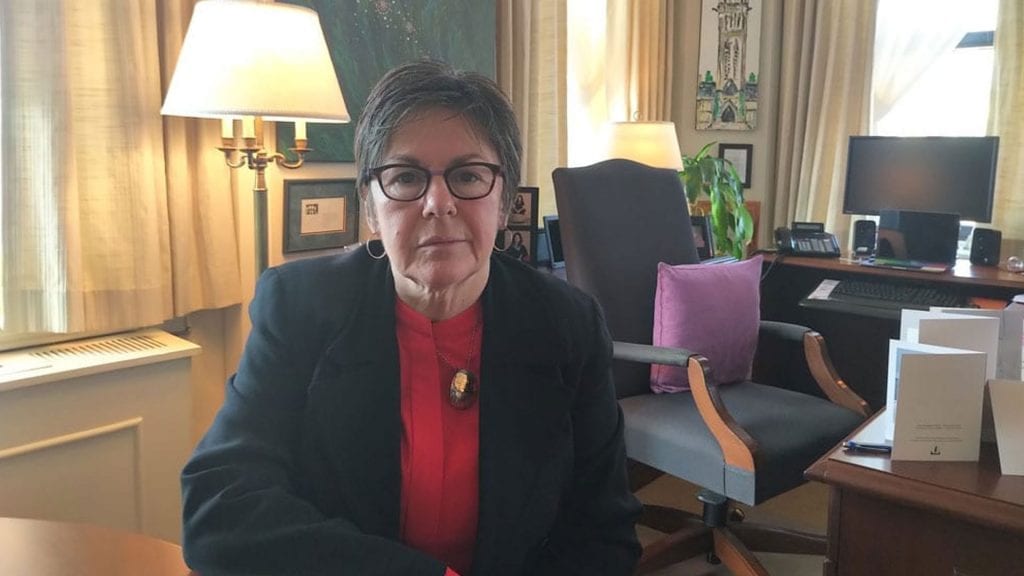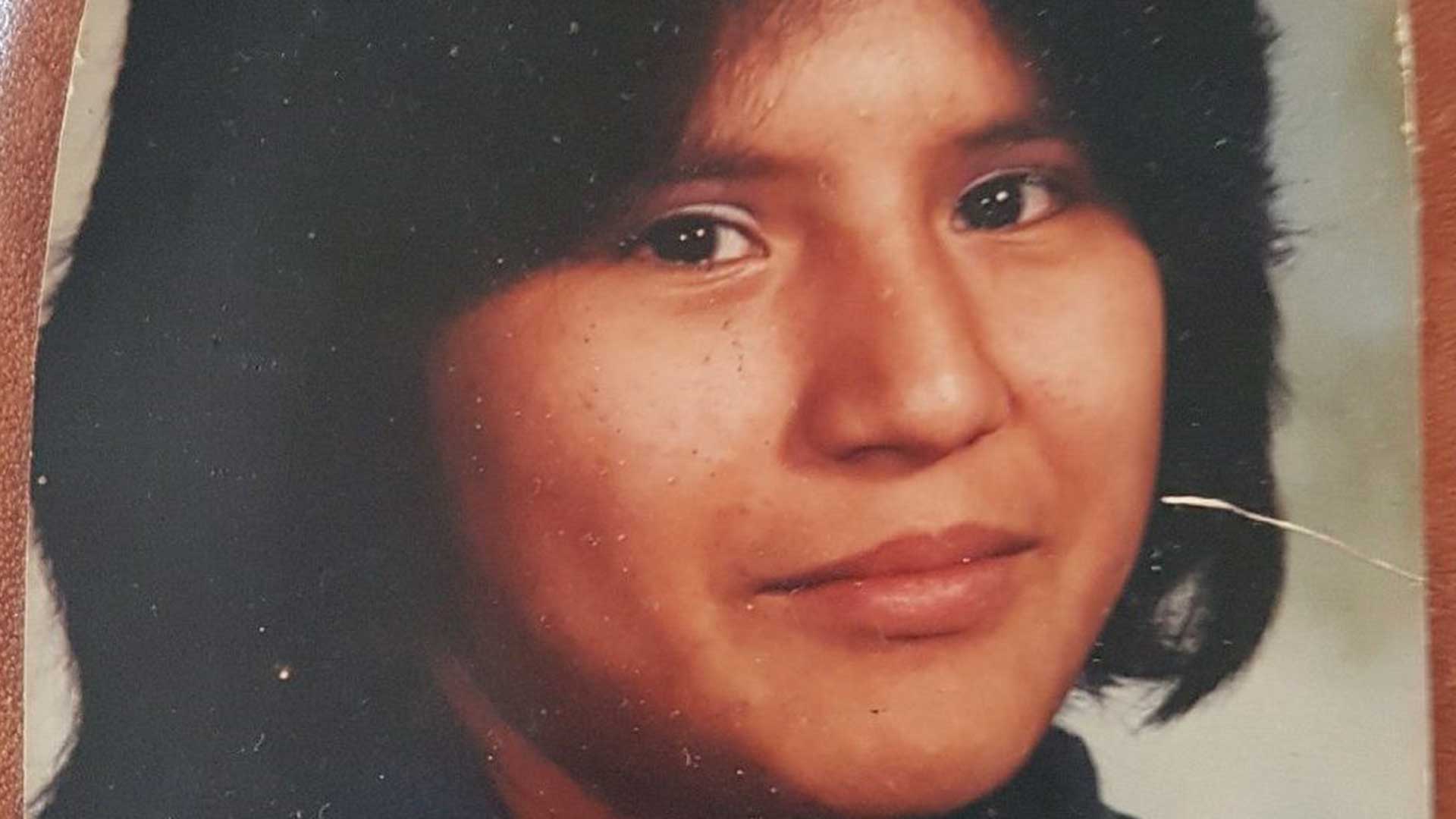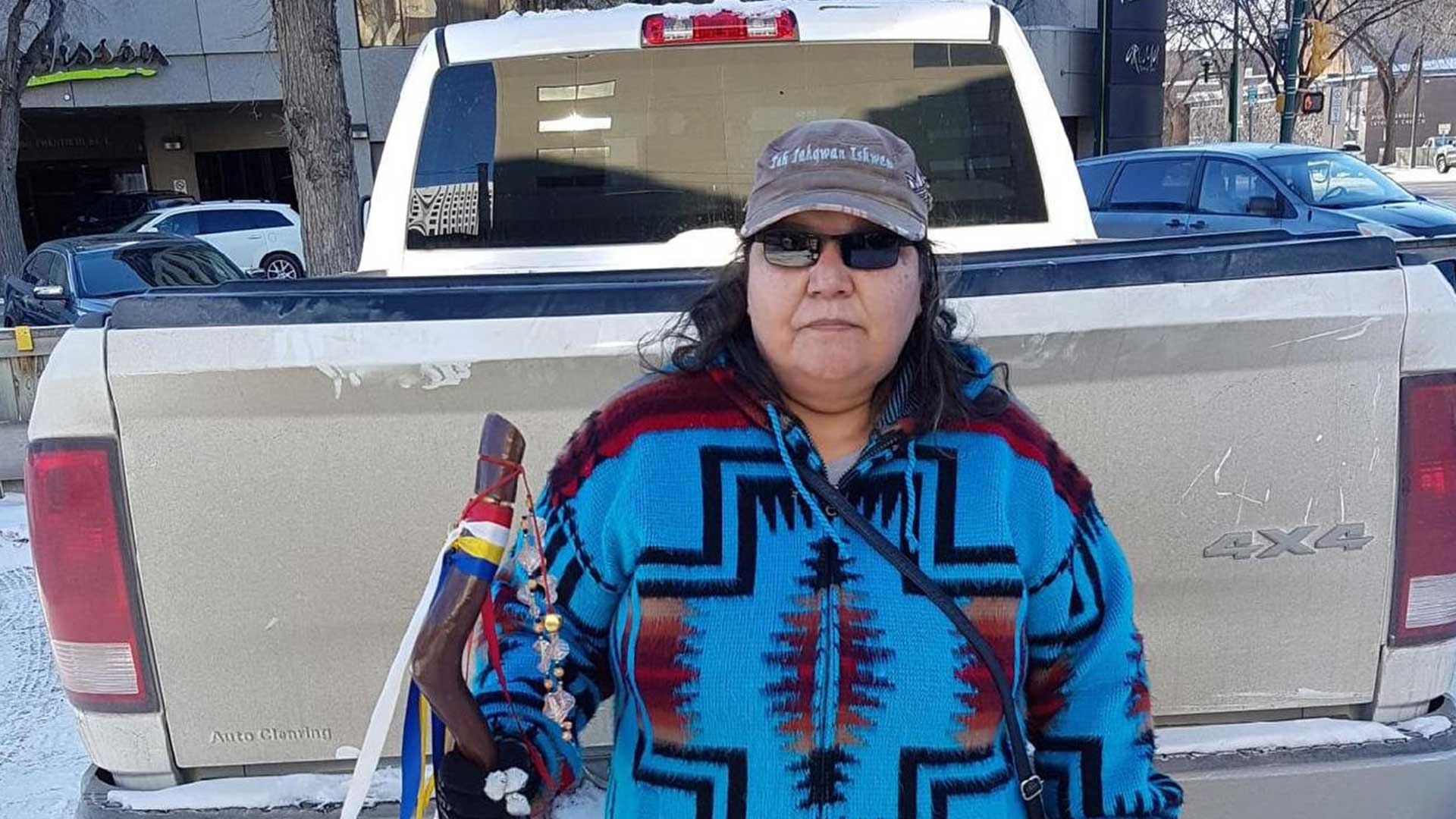
'It will not result in a significant reduction in the number of Indigenous people or Black people in prison,' says Senator Kim Pate of the government's proposed justice reform. Photo: APTN.
A new criminal justice reform bill introduced by the Trudeau government will not go far enough to reduce the number of Indigenous or Black inmates in the prison system, according to Senator Kim Pate.
“It goes a step in the right direction,” said Pate. “However, it’s billed as doing far more than it actually does.”
Bill C-22, introduced by the Liberal government in February 2020, aims to reduce systemic racism in the prison system and address the over-incarceration of Indigenous and Black offenders.
The bill calls for abolishing 20 mandatory minimum offences, requiring law enforcement to seek diversions and greater use of conditional sentencing orders.
But Pate panned that approach.
“It will not result in a significant reduction in the number of Indigenous people or Black people in prison,” Pate said, arguing that Bill C-22 could be an opportunity to drop mandatory minimums in murder cases where Indigenous female offenders have been abused.
She pointed to the second-degree murder conviction of Carol Daniels, for the 1989 killing of teenager Marsha Okemow in Prince Albert, SK.
Daniels, just 19 at the time, had suffered a long history of sexual and physical abuse by her family when she murdered Okemow.

Daniels, who spoke to APTN News from western Canada, said she was intoxicated and believed Okemow to be an abusive family member sleeping on the couch when she stabbed her to death.
Pate said judges still aren’t able to make discretionary sentencing decisions that consider childhood and other traumas in Indigenous women offenders because of mandatory minimums.
“Carol is a perfect example of the type of women who are serving life sentences in a context where they never had the opportunity to have what happened in their lives contextualized,” she said, “It’s pretty clear that her history of abuse as a child in her own family would have contributed to her situation.”
Daniels said she knew she was in trouble and felt remorse.
“I felt extremely bad for it,” she said, “I realized ‘Oh, my God, I took a life.’”
Marsha’s older sister, Pauline Okemow said she believes mandatory sentences are appropriate in cases like Marsha’s murder.
“They should have to serve out their sentence,” she said.
Marsha became a ward of the child welfare system at a young age and was a frequent run-away but Pauline points out many Indigenous women come from similar traumatic backgrounds but don’t hurt anyone.
“We all have that background. We all do, but we didn’t turn out like that,” Pauline said.

Bill C-22 leaves murder still subject to mandatory minimums and does not allow for judges to take an offender’s history into account upon sentencing.
Justice Minister David Lametti declined an interview request but emailed a statement not directly addressing Pate’s concerns.
“By removing restrictions on the availability of conditional sentences, Bill C-22 will result in more opportunities for Indigenous women to heal within their own communities, continue caring for their children and family members, and access culturally appropriate support services – rather than being sent away to prison.”
Pate agreed Indigenous women need to access conditional sentencing but more could be done to ensure they don’t face life in prison.
“We know that 91 per cent of the women serving federal sentences have histories of abuse,” she said. “But, in particular – and we’re talking about Indigenous women – they would have an opportunity to be heard and to have the story understood, put in context.”
Daniels said she was never able to properly explain why she killed Okemow.
She said after many years of therapy she is finally coming to terms with her crime.
“I got scared and I got paranoid,” she said. “I couldn’t sleep, and I was so drunk and so paranoid at the same time that I had slipped right into my PTSD about my family.
“That poor woman, that poor Marsha. She was in the wrong place. That poor woman suffered for nothing and her family suffered for nothing, too.”
Daniels was sentenced to life in prison after her conviction for second-degree murder. She was sentenced to life in prison without eligibility for parole for ten years in 1990.
A provincial judge determined that Daniels had the right to serve her sentence at a facility close to home but there was no unit for women in the Saskatchewan penitentiary at the time. She was placed in a 5-female unit within the men’s prison and that had an effect on her rehabilitation.
“We were behind on programming and on rehabilitation because we were in men’s prison,” she said. “We had to wait for women’s prisons to open before we could get out of these men’s prisons,”

She was first granted parole in 2001, but said she violated the conditions multiple times because she didn’t have the resources to deal with her own traumatic background.
She now lives in western Canada and said she thinks about Marsha Okemow often.
“I have two lives to consider now, my life and her life. She didn’t get to live her life, so I have to live her life for her in a good way, “ she said.
Pauline Okemow said she has carried a lot of anger about Marsha’s murder but is ready to hear from Daniels.
“She could write a letter to my family or something, because we never had an explanation,” she said. “You know, she has to be forgiven at some point.”
Pate said the Trudeau government lost an opportunity to reform sentencing for Indigenous women with Bill C-22.
“We’ve known for some time that mandatory minimum sentences affect Indigenous women, and Indigenous offenders,” she said, “This is one opportunity that the government has.”
“What’s it going to take to try to address this disparity? What is it going to take for them to really listen and look at the circumstances behind these offenses?”
With files from Brittany Guyot









